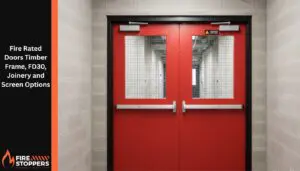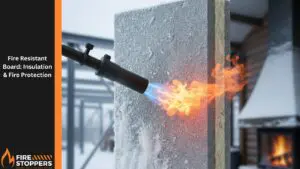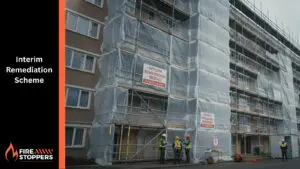Fire safety compliance represents one of the most critical responsibilities for any property manager in Ireland. With evolving fire safety regulations under the Fire Services Act 1981 & 2003, increased liability risks, and the ultimate responsibility to protect tenants, understanding and implementing comprehensive fire safety measures has never been more important. This article explores the essential compliance standards every Irish property manager must know, from the Building Regulations 1997-2021 to best practices that help property owners mitigate risks and ensure their buildings meet all necessary safety standards. Whether you’re managing multi-unit developments or rental properties, this guide will help you navigate the complex landscape of fire protection while protecting both your tenants and your investment under Irish law.
Table of Contents
- What Are the Key Fire Safety Compliance Requirements for Irish Property Managers?
- How Can Property Managers Ensure Fire Protection Systems Are Properly Maintained Under Irish Standards?
- What Are the Legal Liability Risks for Property Managers Under Irish Fire Safety Law?
- How Often Should Fire Safety Inspections Be Conducted According to Irish Requirements?
- What Fire Safety Best Practices Should Irish Property Managers Implement?
- How Do Multi-Unit Developments Differ in Fire Safety Requirements Under Irish Law?
- What Role Do Property Managers Play in Tenant Fire Safety Education Under Irish Law?
- How Can Property Managers Stay Current with Changing Irish Fire Safety Regulations?
- What Documentation and Record-Keeping Requirements Must Irish Property Managers Follow?
- How Can Property Managers Protect Their Properties from Fire-Related Liability Under Irish Law?
- Key Takeaways for Irish Property Manager Fire Safety Compliance
What Are the Key Fire Safety Compliance Requirements for Irish Property Managers?
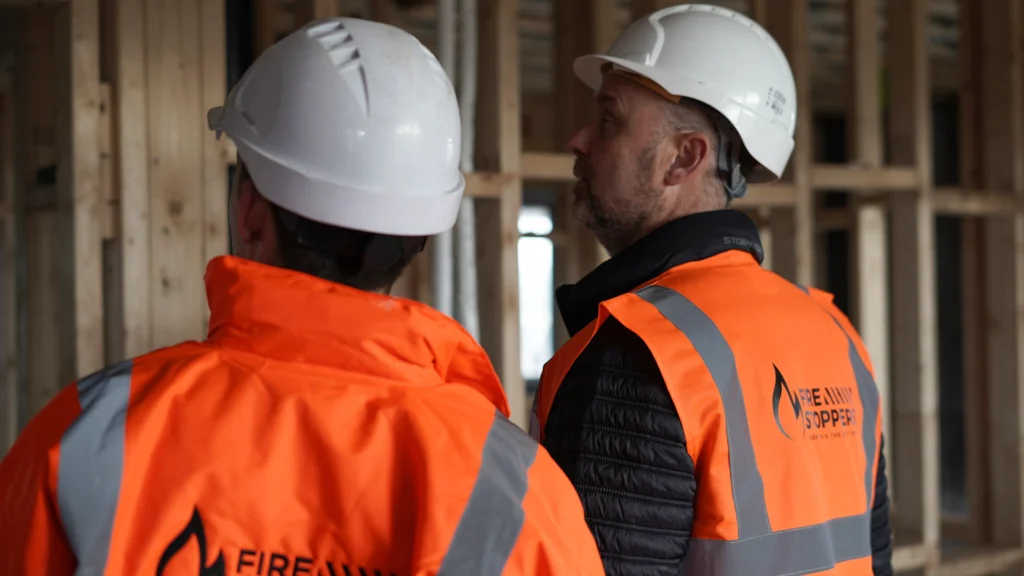
Property managers in Ireland face a comprehensive web of fire safety regulations governed primarily by the Fire Services Act 1981 & 2003 and the Building Regulations 1997-2021, particularly Part B: Fire Safety. These statutory requirements encompass everything from fire alarm systems compliant with IS 3218 standards to fire doors and evacuation procedures that meet Irish national standards.
Understanding these legal requirements is crucial because non-compliance can result in significant fines, legal liability, and potentially catastrophic consequences. Property managers must ensure their buildings meet fire code compliance standards, which typically include proper installation and maintenance of fire protection systems meeting IS 3217 for emergency lighting and IS 3218 for fire alarms. The responsibility extends beyond basic compliance to encompass proactive measures that help property managers stay ahead of fire risks and protect their tenants.
The Multi Unit Developments Act 2011 has introduced specific new responsibilities for property managers of multi-unit developments, requiring annual fire safety reporting and enhanced documentation. Property managers must maintain up-to-date documentation of all safety measures, inspections, and maintenance activities in accordance with Department of Housing, Local Government and Heritage guidelines. This documentation not only ensures compliance but also serves as crucial evidence in case of legal challenges or insurance claims.
How Can Property Managers Ensure Fire Protection Systems Are Properly Maintained Under Irish Standards?
Maintaining fire protection systems in Ireland requires adherence to specific national standards and regular consultation with qualified professionals familiar with Irish fire safety regulations. Property managers should establish relationships with fire protection specialists certified to work with IS 3217 and IS 3218 compliant systems, who can conduct thorough assessments of all fire safety equipment and ensure compliance with local fire authority requirements.
Regular fire safety inspections should be scheduled according to Irish national standards and local fire code requirements. This includes testing fire alarm systems to IS 3218 specifications, checking emergency lighting systems that meet IS 3217 standards, inspecting fire extinguishers, and ensuring fire doors operate properly. Property managers must also oversee the maintenance of more complex systems like vent systems and fire protection systems that may require specialized expertise approved by the National Standards Authority of Ireland.
Documentation plays a vital role in system maintenance under Irish law. Property managers should maintain detailed records of all maintenance activities, including dates, findings, and any corrective actions taken, in formats that comply with Irish regulatory requirements. This documentation helps demonstrate compliance during inspections by local fire authorities and provides valuable information for insurance purposes. Regular consultation with fire safety professionals familiar with Irish regulations can help property managers identify emerging issues and implement preventive measures.
What Are the Legal Liability Risks for Property Managers Under Irish Fire Safety Law?

The legal liability associated with fire safety compliance in Ireland extends far beyond simple regulatory fines under the Fire Services Act. Property managers who fail to maintain adequate fire safety measures face potential lawsuits from tenants, property damage claims, and even criminal charges in cases of negligence under the Safety, Health and Welfare at Work Act 2005.
Insurance implications represent another major concern in the Irish market. Irish insurers increasingly scrutinize fire safety compliance when underwriting policies, particularly for multi-unit developments, and non-compliance can lead to higher insurance premiums or even policy cancellations. Property managers must understand that their ultimate responsibility extends to ensuring that all fire safety measures meet current Irish standards and are properly maintained according to national specifications.
The legal landscape has become more complex with the implementation of the Multi Unit Developments Act 2011 and updated Housing (Standards for Rented Houses) Regulations 2019. Property managers must stay informed about evolving fire safety regulations from the Department of Housing, Local Government and Heritage and ensure their properties remain compliant. This includes understanding the specific requirements for different types of buildings, from residential rental properties to commercial spaces. Failure to adapt to new regulations can result in significant legal liability and financial consequences.
How Often Should Fire Safety Inspections Be Conducted According to Irish Requirements?
Fire safety inspection frequency in Ireland depends on several factors, including building type, occupancy levels, and specific requirements under the Fire Services Act and Building Regulations. Multi-unit developments subject to the Multi Unit Developments Act 2011 require annual fire safety reporting, while other commercial properties and multi-family residential buildings may have different inspection schedules as determined by local fire authorities.
Monthly safety checks should focus on easily accessible fire safety equipment, including fire extinguishers, emergency lighting systems compliant with IS 3217, and fire alarm systems meeting IS 3218 standards. These regular safety checks help identify issues early and ensure that all systems remain functional in accordance with Irish national standards. Property managers should also conduct quarterly inspections of fire doors, evacuation routes, and other critical safety features.
Professional inspections should be conducted at least annually by qualified fire safety experts familiar with Irish regulations and certified to work with national standards. These comprehensive assessments should cover all fire protection systems, structural elements, and compliance with current Irish fire safety standards. The inspection process should include testing of all fire safety equipment to Irish specifications, review of evacuation procedures, and assessment of any changes to the building that might affect fire safety compliance under Irish law.
What Fire Safety Best Practices Should Irish Property Managers Implement?
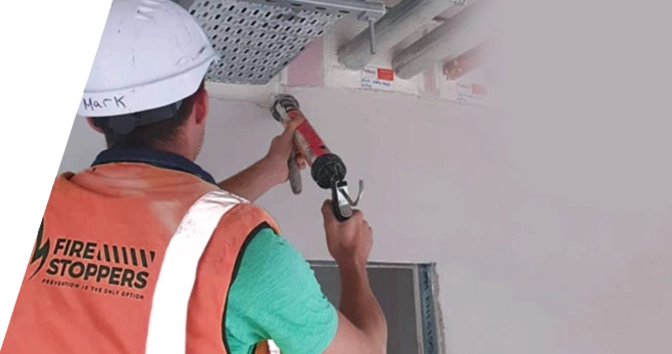
Implementing best practices in Ireland goes beyond minimum compliance requirements under the Fire Services Act and helps property managers create a comprehensive fire safety culture that meets the expectations of Irish fire authorities. This includes establishing clear communication protocols with tenants about fire safety procedures, conducting regular fire drills as required by Irish regulations, and ensuring that all residents understand evacuation routes and emergency procedures.
Property managers should also implement proactive maintenance schedules that address potential fire hazards before they become serious problems, particularly in multi-unit developments where Owner Management Companies (OMCs) must coordinate safety measures across multiple units. This includes regular cleaning of vent systems, removal of combustible materials from common areas, and ensuring that all fire safety equipment remains easily accessible and compliant with Irish standards.
Technology can play a crucial role in modern fire safety management under Irish regulations. Property managers should consider implementing monitoring systems that provide real-time alerts about fire safety equipment status, automated inspection reminders aligned with Irish compliance schedules, and digital record-keeping systems that meet Department of Housing, Local Government and Heritage requirements. These tools help ensure that no critical maintenance tasks are overlooked and that all compliance requirements are met consistently.
How Do Multi-Unit Developments Differ in Fire Safety Requirements Under Irish Law?
Multi-unit developments in Ireland face unique fire safety challenges under the Multi Unit Developments Act 2011, which requires annual fire safety reporting and enhanced management of common areas. These properties typically require more sophisticated fire protection systems, including interconnected fire alarm systems meeting IS 3218 standards, multiple evacuation routes, and specialized fire doors that can withstand extended exposure to fire and smoke.
The complexity of multi-unit developments means that property managers must coordinate fire safety measures across multiple units while ensuring that individual leaseholders and tenants understand their responsibilities under Irish law. This includes ensuring that residents don’t compromise fire safety by blocking evacuation routes, disabling fire alarms, or storing combustible materials inappropriately in common areas.
Compliance requirements for multi-unit developments under Irish law often include additional considerations such as fire-resistant construction materials, specialized fire protection systems for common areas meeting national standards, and enhanced emergency lighting systems compliant with IS 3217. Property managers must also ensure that any modifications or renovations to individual units don’t compromise the overall fire safety of the building and comply with Building Regulations Part B requirements.
What Role Do Property Managers Play in Tenant Fire Safety Education Under Irish Law?

Tenant education represents a critical component of comprehensive fire safety compliance under Irish housing regulations. Property managers have a responsibility to ensure that all tenants understand fire safety procedures, evacuation routes, and their individual responsibilities in maintaining building safety as outlined in the Housing (Standards for Rented Houses) Regulations 2019.
Regular communication about fire safety helps ensure that tenants remain aware of important safety procedures and any changes to building systems or evacuation routes. Property managers should provide written materials about fire safety procedures that comply with Irish requirements, conduct periodic safety meetings as mandated by local fire authorities, and ensure that all tenants know how to report fire hazards or safety concerns to appropriate Irish authorities.
Property managers should also establish clear protocols for addressing tenant behavior that might compromise fire safety, particularly in multi-unit developments where the actions of one tenant can affect the safety of all residents. The lease agreement should clearly outline tenant responsibilities regarding fire safety compliance with Irish law and the consequences of non-compliance, including potential service charge implications for remedial work.
How Can Property Managers Stay Current with Changing Irish Fire Safety Regulations?
Staying current with evolving Irish fire safety regulations requires a proactive approach that combines professional development, industry networking, and regular consultation with fire safety experts familiar with Irish law. Property managers should subscribe to publications from the Department of Housing, Local Government and Heritage, attend relevant training seminars, and participate in professional organizations that provide updates on regulatory changes.
Regular consultation with fire safety professionals certified to work with Irish national standards helps property managers understand how regulatory changes affect their specific properties. These experts can provide guidance on implementing new requirements, updating existing systems to meet IS 3217 and IS 3218 standards, and ensuring that all changes are properly documented and compliant with current Irish standards.
Property managers should also establish relationships with their local fire authorities and building control officers. These professionals can provide valuable guidance on local requirements and help property managers understand how broader regulatory changes from the National Standards Authority of Ireland apply to their specific situations. Regular communication with these officials helps ensure that property managers remain informed about upcoming changes and can plan accordingly.
What Documentation and Record-Keeping Requirements Must Irish Property Managers Follow?

Comprehensive documentation represents a cornerstone of effective fire safety compliance under Irish law. Property managers must maintain detailed records of all fire safety inspections, maintenance activities, and system installations in accordance with requirements from the Department of Housing, Local Government and Heritage. These records should include dates, findings, corrective actions taken, and certification of completion by qualified professionals familiar with Irish standards.
Compliance reports should be prepared regularly and made available to relevant Irish authorities, insurance companies, and property owners. For multi-unit developments, the Multi Unit Developments Act 2011 requires annual fire safety reporting that provides a comprehensive overview of the property’s fire safety status. Regular reporting helps demonstrate ongoing compliance with Irish law and provides valuable information for decision-making.
Digital record-keeping systems can help property managers maintain organized, accessible documentation while ensuring that all records are backed up and secure in compliance with Irish data protection requirements. These systems should include capabilities for scheduling inspections according to Irish regulatory timelines, tracking maintenance activities, and generating compliance reports that meet national standards. Proper documentation not only ensures compliance but also provides crucial protection in case of legal challenges or insurance claims.
How Can Property Managers Protect Their Properties from Fire-Related Liability Under Irish Law?
Protecting properties from fire-related liability in Ireland requires a comprehensive approach that combines strict compliance with the Fire Services Act and Building Regulations with proactive risk management. Property managers should conduct regular risk assessments to identify potential fire hazards and implement measures to mitigate these risks before they become serious problems, particularly in multi-unit developments where liability can be shared among multiple parties.
Insurance considerations play a crucial role in liability protection within the Irish market. Property managers should work closely with their Irish insurance providers to ensure that coverage adequately reflects the property’s fire safety measures and compliance status with national standards. Regular communication with insurers about safety improvements and compliance activities can help maintain favorable coverage terms and potentially reduce insurance premiums.
Legal protection also requires careful attention to lease agreements and tenant communications under Irish law. Property managers should ensure that lease agreements clearly outline fire safety responsibilities for both landlords and tenants in accordance with Irish housing regulations. Regular communication about fire safety requirements and any changes to building systems helps ensure that all parties understand their obligations under Irish law and reduces the risk of liability claims. For multi-unit developments, the freeholder and management company must coordinate their responsibilities to ensure comprehensive protection.
Key Takeaways for Irish Property Manager Fire Safety Compliance
- Irish Regulatory Compliance: Understanding and implementing the Fire Services Act 1981 & 2003, Building Regulations 1997-2021 (Part B), and Multi Unit Developments Act 2011 is essential for legal compliance and tenant protection.
- National Standards Adherence: Ensure all fire safety systems meet IS 3217 (emergency lighting) and IS 3218 (fire alarms) standards as required by the National Standards Authority of Ireland.
- Regular Inspections: Establish comprehensive inspection schedules that meet Irish requirements, including annual reporting for multi-unit developments and regular professional assessments.
- Proper Documentation: Maintain detailed records of all fire safety activities in accordance with Department of Housing, Local Government and Heritage requirements to demonstrate compliance and protect against liability.
- Irish Professional Partnerships: Work with fire safety experts certified in Irish national standards for inspections, maintenance, and consultation on regulatory changes.
- Tenant Education: Implement comprehensive tenant education programs that comply with Housing (Standards for Rented Houses) Regulations 2019, covering fire safety procedures and individual responsibilities.
- Multi-Unit Development Considerations: Understand the specific requirements under the Multi Unit Developments Act 2011, including annual fire safety reporting and coordination with Owner Management Companies.
- Liability Management: Implement comprehensive risk management strategies that combine strict compliance with Irish law, proactive safety measures, and appropriate insurance coverage from Irish providers.
- Local Authority Coordination: Maintain regular communication with local fire authorities and building control officers to ensure ongoing compliance with Irish regulations.
- Continuous Learning: Stay current with changing Irish regulations through professional development, industry networking, and regular consultation with fire safety experts familiar with Irish law and national standards.

